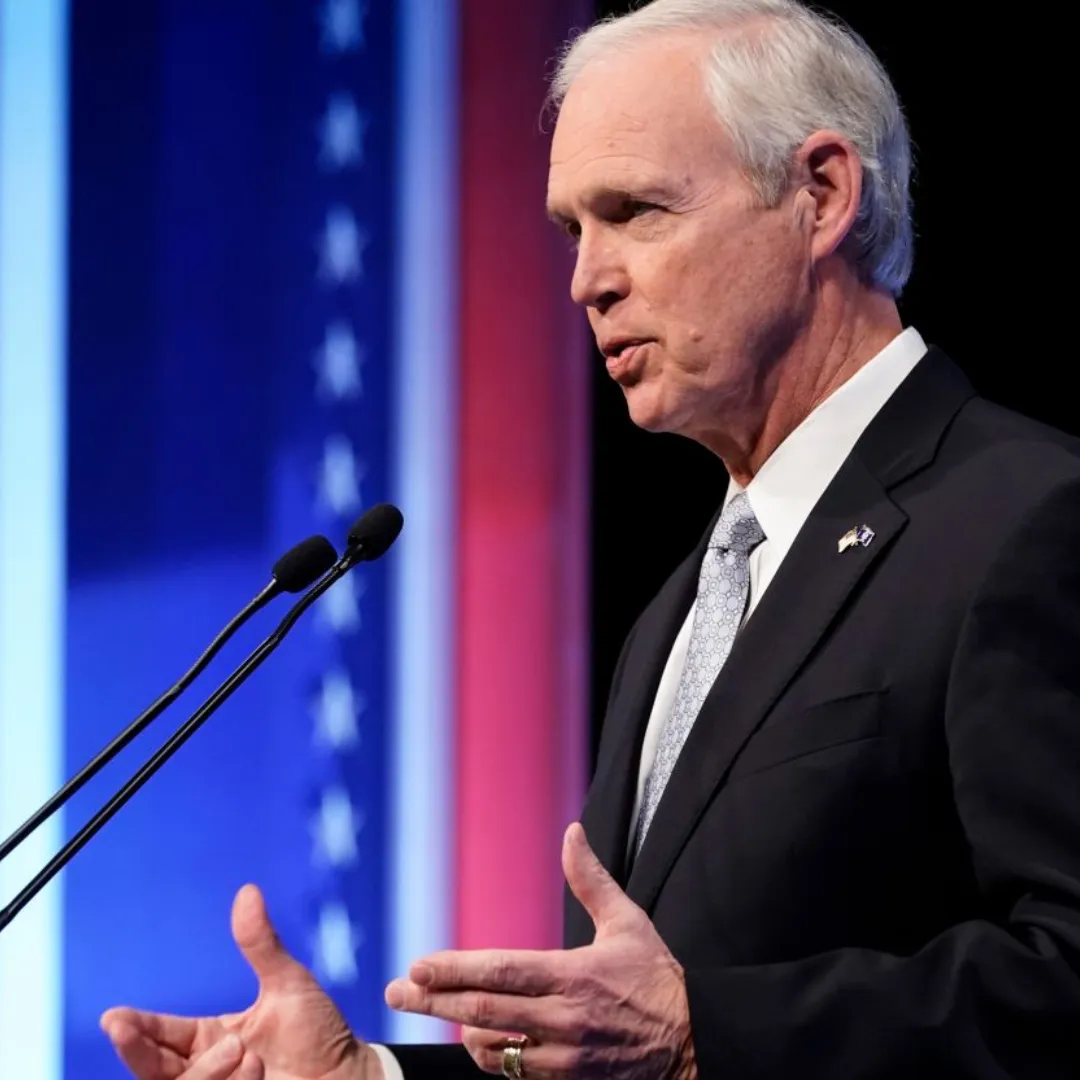Momodou Taal, a student at Cornell University, has voluntarily left the United States after his visa was revoked due to his involvement in pro-Palestinian protests on campus. Taal’s decision comes after a judge declined to intervene in his lawsuit against the Trump administration, which had used executive orders to target foreign students participating in such protests.
His case has drawn attention to the tension between free speech, government actions, and the rights of international students in the U.S.
Taal’s situation highlights the broader implications of the Trump administration's stance on foreign students and activism, especially regarding protests related to Palestine and Israel.
Taal’s legal battle centered around the claim that two executive orders—one addressing antisemitism and the other focused on foreign terrorist threats—were being used to unfairly target pro-Palestinian protesters. Despite his efforts to challenge these executive orders in court, Taal chose to leave the U.S. after the judge’s ruling.
In his statement, Taal explained that he no longer felt safe in the United States, citing a loss of faith in the judicial process and growing concerns about his personal security. His case has sparked discussions on the limits of free speech, the rights of foreign nationals in the U.S., and the intersection of national security with civil liberties.
Taal's legal challenges began after he became involved in protests on campus following the Oct. 7, 2023, Hamas attack on Israel. The protests, which were part of a broader movement supporting Palestinian rights, led to the suspension of Taal from Cornell University.
However, the university later reinstated him.
The controversy intensified after Taal made statements on social media, including a post on X (formerly Twitter), where he expressed support for Palestinian resistance and criticized Israel’s actions.
His statement—"Colonised peoples have the right to resist by any means necessary" and "Glory to the resistance!"—caught national attention and led to the Trump administration revoking his visa under the premise that his involvement in pro-Palestinian protests violated U.S. laws.
Taal fought back by suing the Trump administration, challenging the legality of the two executive orders. The first order, signed by President Trump, aimed to combat antisemitism by defining it as a form of discrimination that includes criticism of Israel’s policies.
The second order focused on addressing threats from foreign terrorists, with an emphasis on ensuring that foreign nationals involved in protest movements could be targeted if they were seen as a threat to national security.

Taal argued that these executive orders were being used as tools to silence pro-Palestinian voices and discriminate against those expressing their beliefs about the Israeli-Palestinian conflict. The legal battle, however, did not go in Taal’s favor.
The judge ruled against him, stating that the court lacked jurisdiction over the case and that Taal had failed to show that his constitutional rights were being violated in a way that could be addressed by the lawsuit.
Despite the legal setback, Taal's decision to leave the U.S. was not easy. In his statement, he said, “Today I took the decision to leave the United States, free and with my head held high.”
However, Taal expressed deep regret, acknowledging that this was not the outcome he had hoped for when he initially pursued his legal challenge.
“Given what we have seen across the United States, I have lost faith that a favorable ruling from the courts would guarantee my personal safety and ability to express my beliefs,” Taal wrote. His decision to leave was driven by the fear of being detained or further persecuted, especially after seeing what he described as a growing trend of government hostility toward those who engage in pro-Palestinian activism.
Taal’s departure highlights a critical point in his experience: his personal safety was at risk, and he no longer felt secure in the United States. “I have lost faith I could walk the streets without being abducted,” he added, underscoring the climate of fear he felt as a result of the government's actions against activists.
Taal’s case reflects the broader political climate in the U.S. during the Trump administration, where the intersection of national security, free speech, and activism became a contentious issue.
His involvement in pro-Palestinian protests, a movement that has sparked heated debates in the U.S. and around the world, placed him at the center of a larger debate about the right to free expression, especially for foreign students.
The executive orders that targeted individuals like Taal are seen by many as part of a broader strategy to silence dissent and limit political engagement from specific groups, particularly those advocating for Palestinian rights.
Critics argue that these actions represent a form of political repression, where the government is using its power to intimidate activists and suppress their ability to voice opposition to government policies, particularly when it comes to foreign affairs and controversial issues like the Israeli-Palestinian conflict.
For Taal, the struggle was not just about the legal fight but about the larger issue of being able to express political beliefs without facing retribution. His departure underscores a troubling reality for many activists and foreign students in the U.S. who may fear persecution for their views.
The decision to leave voluntarily reflects a painful choice many feel forced to make when their freedom to speak out is compromised by government actions.

Taal’s involvement in the protests and his subsequent legal battle highlights the growing role that social media plays in activism, particularly for younger generations. Social media platforms like X (formerly Twitter) have become key tools for organizing protests, spreading political messages, and connecting with like-minded individuals.
For Taal, his social media posts became a focal point for his activism and the government’s decision to revoke his visa.
Taal’s statement on X, which supported Palestinian resistance and criticized Israel’s military actions, quickly spread, drawing attention to the broader pro-Palestinian movement on U.S. college campuses. However, it also attracted backlash from critics who saw Taal’s words as promoting violence and undermining the legitimacy of U.S. foreign policy.
The role of social media in this context further complicates the debate over free speech, as platforms increasingly become spaces for political engagement that can have real-world consequences, including visa revocations and deportations.
The U.S. government’s crackdown on pro-Palestinian protests and activists raises questions about the limits of free expression, particularly for foreign nationals who may feel vulnerable to retaliation when speaking out on politically sensitive issues.
Taal’s case serves as a stark reminder of the ways in which social media activism can intersect with government policies that seek to curtail dissent.
Taal’s experience also raises important questions about the treatment of foreign students in the U.S., especially those involved in political movements. Foreign students, who come to the U.S. for education and opportunities, often find themselves in precarious positions when they become politically active, particularly on contentious issues such as the Israeli-Palestinian conflict.
Their status as visa holders makes them more vulnerable to actions from the government that seek to limit their ability to speak out and protest.
Taal’s case is not an isolated one; many foreign students have faced similar challenges in the U.S. as they become involved in political activism. The fear of deportation, visa revocation, or being targeted by government policies can lead students to self-censor or abandon activism altogether, stifling political engagement and free speech on campuses.

Taal’s decision to leave the U.S. voluntarily reflects the challenges faced by foreign students who find themselves caught between their desire to express their political beliefs and the potential consequences of doing so. For many, the threat of deportation or legal action can be enough to silence their voices and force them to leave the country, even if it means abandoning their academic pursuits.
Momodou Taal’s voluntary departure from the United States represents a defining moment in the ongoing debate about free speech, activism, and the treatment of foreign students in the U.S.
His legal battle against the Trump administration’s executive orders, his involvement in pro-Palestinian protests, and his ultimate decision to leave the country reflect the intersection of political repression and the struggle for civil liberties in an increasingly polarized society.
For Taal, the fight was not just about winning a legal battle; it was about the right to express his political beliefs without fear of retribution. His departure highlights the challenges faced by students and activists who seek to speak out on controversial issues, particularly those related to foreign policy.
It also serves as a cautionary tale for other foreign nationals in the U.S. who may fear similar repercussions for their political activism.
As the U.S. continues to grapple with issues of free speech, national security, and the treatment of foreign students, Taal’s case will likely remain a touchstone for debates about the limits of political expression and the role of government in regulating dissent.
Whether or not the legal and political landscape shifts in response to these challenges remains to be seen, but for Taal, the decision to leave was a difficult but necessary step in protecting his personal safety and political freedom.




